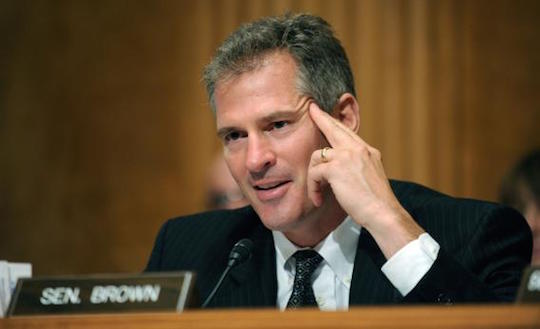The Dodd-Frank Act is not quite five years old, but it has already become an intolerable obstacle to the American economy finance industry. Don’t worry: the finance, insurance and real estate industry spent $74 million on 704 registered lobbyists in the first three quarters of 2014. That’s a 2.5 percent increase in a year where every other industry’s lobbying expenditures went down. It was money well spent. Since mid-December, the House has voted to impose stricter cost-benefit analyses and judicial reviews on all enforcement agencies; today, it is expected to postpone enforcement of Dodd-Frank provisions and weaken related regulations on financial services. You didn’t think the finance industry would invest $74 million unwisely. I mean, what is this, 2008?
That comparison is unfair. Obviously, the global collapse that destroyed the finance and real estate industries six years ago would never happen again. Not because of Dodd-Frank, either—and not because the stock market has reached a record high at the same time oil prices have plummeted. Those may be similar conditions to the ones that preceded the worst financial crisis since the Great Depression, but at least the housing market isn’t in the same place it was when—oh.
Okay, many of the conditions that preceded the 2008 collapse obtain today, and the House is collaborating with FIRE1 lobbyists to postpone/undo the regulation we installed to prevent such a collapse from happening again. But I don’t think we have anything to worry about. The 2008 collapse has already happened, and by definition things that already happened are in the past, not the future.
So House Republicans and the smattering of Democrats voting with them have the country’s best interests at heart as they weaken Dodd-Frank. They just want to lift burdensome regulations that have prevented the financial industry from working efficiently during this time of record profits.
The only other explanation would have to do with rational self-interest, which has no place in this area of inquiry. To entertain the cynics, though, we should note that the FIRE industry spent $1.2 billion on lobbying and campaign contributions between Jan 1. and Nov. 16 of 2014. That’s on track to exceed the amount it spent in 2010, when Dodd-Frank was under consideration in Congress.
To recap: lobbyists from the financial industry are using the record profits from a recovery that has been meaningfully confined to their sector in order to undo regulations on themselves that we passed last time they made record profits and destroyed the economy. Also Jeb Bush is probably running for President, but that’s neither here nor there.
Luckily for us, we don’t have to predict the future according to these indicators. If predictions mattered, global financial collapses wouldn’t be a problem. We need only determine why the House, in this moment eerily similar to the moments preceding the worst crash in living memory, have opted to dismantle Dodd-Frank. Two explanations suggest themselves:
- House Republicans and conservative Democrats genuinely believe that the economy will run better and be just as safe without this regulation.
- They’re doing it for the money.
We should decide this now, so that when the 2016 financial crisis happens we will know whether House Republicans are idiots or liars. Of course, if there is no second financial crisis, we will have to decide whether they are geniuses or liars.
Of the four permutations possible—collapse by idiots, collapse by liars, success by geniuses, success by liars—fifty percent of them involve liars. I’ll leave in to the analysts to determine where the smart money falls.




